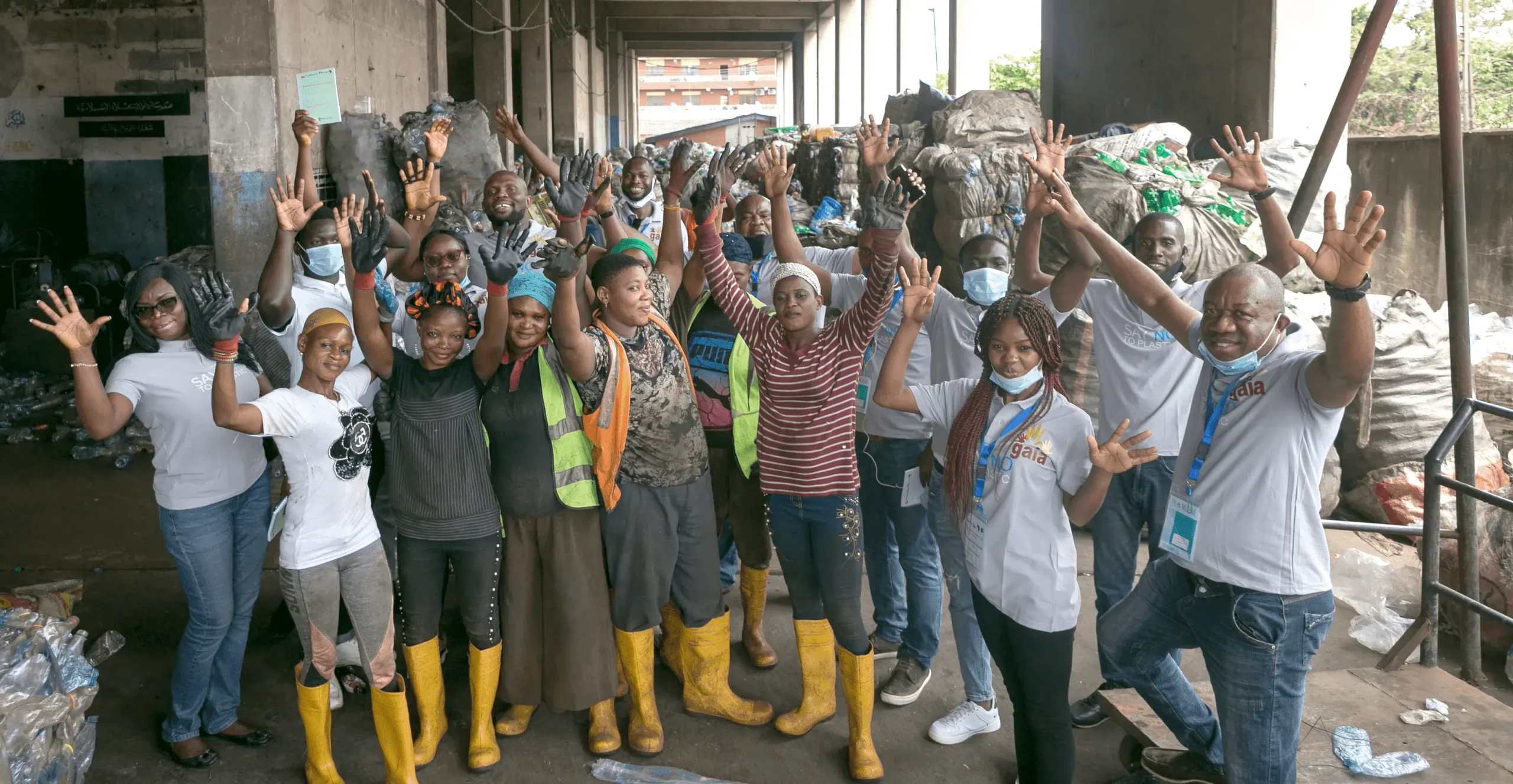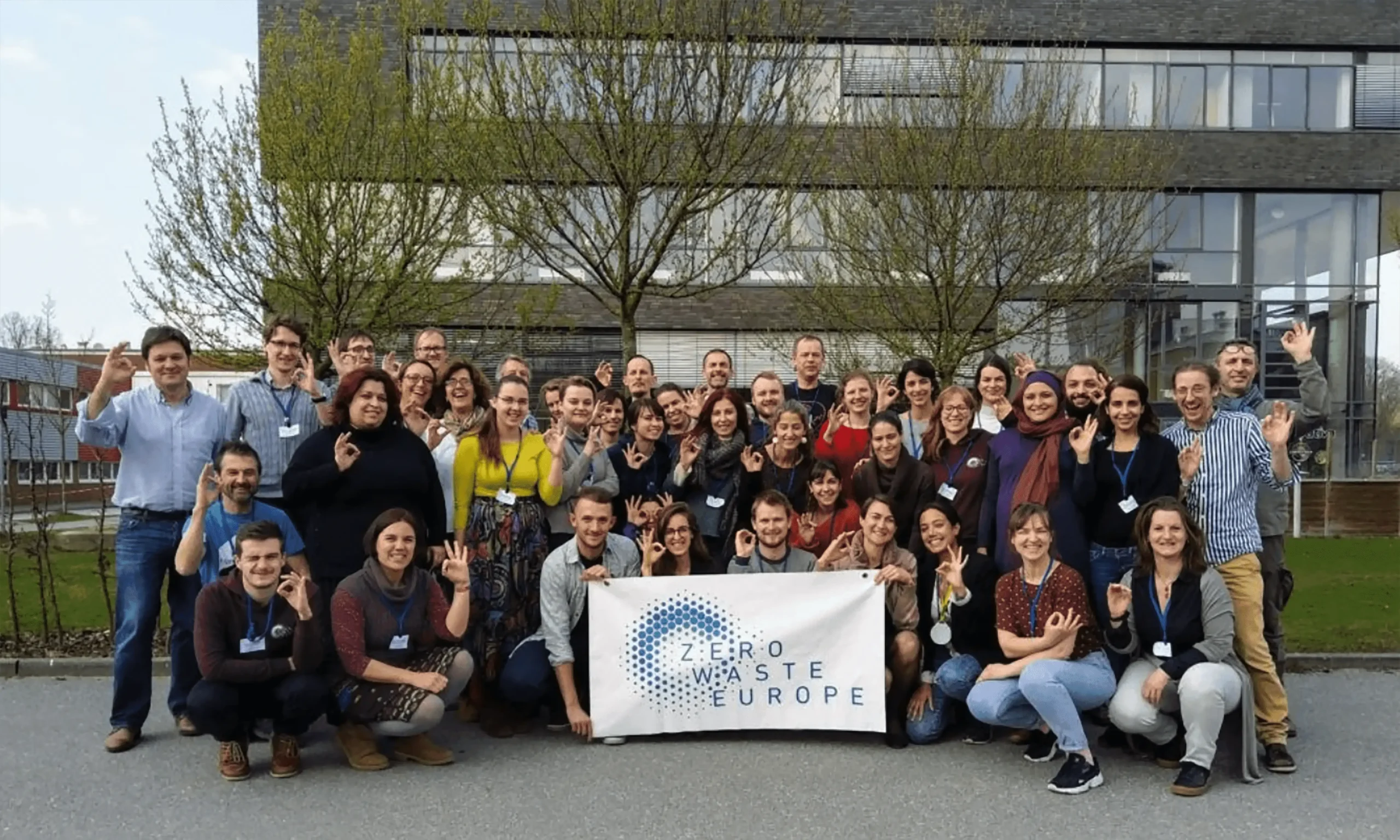
Tools & Resources
Community Guide to Dealing with an Electric Vehicle Battery Recycling Facility

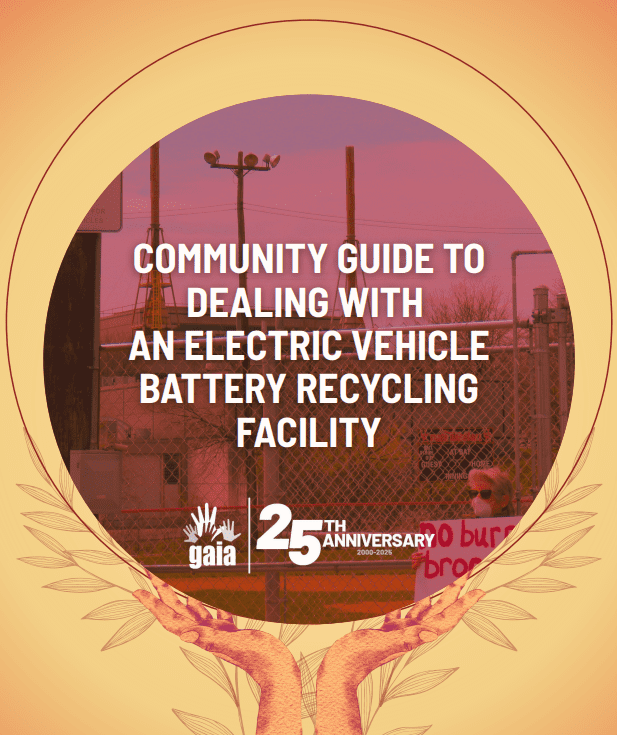
This new community guide offers practical steps to empower frontline communities and workers in navigating the complexities of battery recycling, understanding the health implications, and questions to ask for participating in decision-making processes. This guide is intended to support communities across the globe that are facing a new battery recycling facility proposal or dealing with impacts of an existing project.
Download This Resource
Diagnóstico sobre el manejo de residuos orgánicos en Panamá

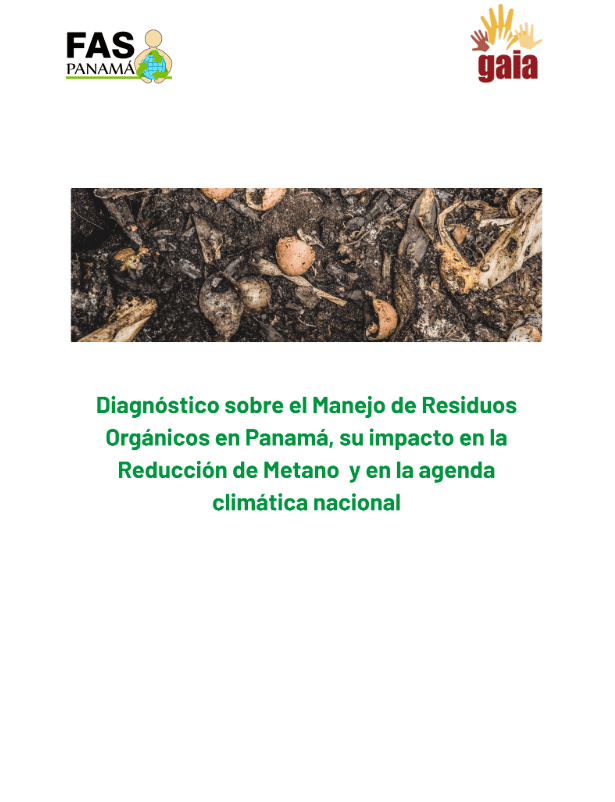
El Diagnóstico sobre el Manejo de residuos orgánicos en Panamá, su impacto en la reducción de metano y en la agenda climática nacional establece la línea base nacional sobre la gestión de residuos orgánicos en Panamá, conecta compromisos internacionales (París, GMP, ROW, ODS) con marcos legales y planes (Ley 33/2018, Ley 276/2021, PNAC, Hoja de Ruta de Economía Circular) y propone una hoja de ruta para mitigar metano, escalar la valorización y acelerar la economía circular, incorporando además la jerarquía de usos alimentarios para reducir la pérdida y desperdicio de alimentos y contribuir a la seguridad alimentaria.
This study establishes Panama’s national baseline on organic waste management, links international commitments (Paris Agreement, GMP, ROW, SDGs) with legal frameworks and national plans (Law 33/2018, Law 276/2021, PNAC, Circular Economy Roadmap), and proposes a roadmap to reduce methane emissions, scale up valorization, and accelerate the circular economy. It also incorporates the food-use hierarchy to reduce food loss and waste and contribute to food security.
Blending More Problems: Co-firing Biomass with Power Plants


Co-firing biomass is a technology that burns biomass alongside other fuels, typically coal, in existing power plants. This technology presents a different set of complexities and harms. In the context of ADB’s policy to support the early retirement of coal-based power plants—including decommissioning of coal-fired power plants and site redevelopment for new economic activity—co-firing of biomass with power plants, whether from energy crops or biomass waste, poses risks with long-term harms to air quality, local communities, ecosystems and efforts to address the triple planetary crisis of climate change, pollution, and biodiversity loss in a region most vulnerable to these interlinked threats.

Download This Resource
Citizens’ Atlas on False Climate and Circularity Solutions


This factsheet assesses 49 “false solutions” projects by ADB that were active or approved between 2015 and 2025. It highlights total financing by solution, recipient countries, the largest funded projects, funding types and financial instruments, project timelines, and environmental and social risk categories these projects belong to. Since 2015, the bank has supported USD 15.3 billion worth of projects with false solutions to circularity and climate action, worsening the debt burdens of countries already challenged with the triple planetary crisis.
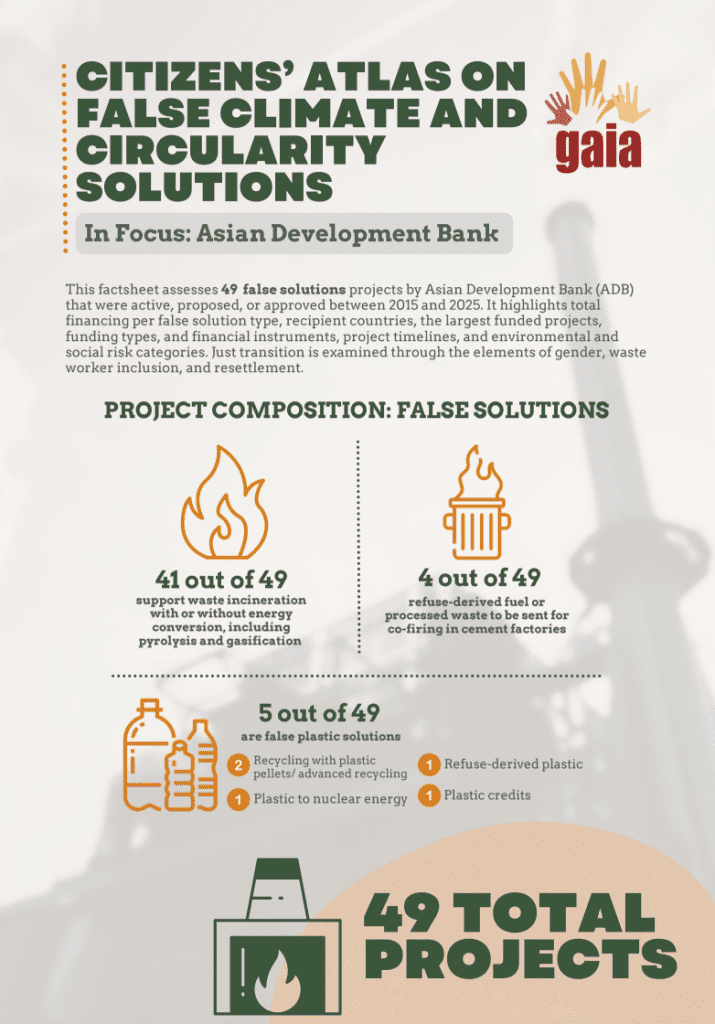
Download This Resource
REPPIE WASTE INCINERATOR: A Case Study Examining Social and Environmental Implications


The Reppie Waste-to-Energy Facility in Addis Ababa was conceived as a modern solution to the city’s waste crisis and a step toward a greener economy. Since the plant’s inception, there have been concerns about equity and community health. This study examines the project’s social and ecological impacts through research and local perspectives, offering insights for more inclusive and sustainable urban waste management.
Download This Resource
Sistemas de basura cero con arraigo comunitario para una mitigación justa del metano

En conjunto, estas ciudades demuestran que los sistemas de basura cero con arraigo en la comunidad, cuando cuentan con el respaldo de programas públicos de gestión de residuos, pueden dar lugar a un sistema de manejo de residuos holístico y eficaz que reporta beneficios tanto ambientales como sociales. Convierten la ambición climática en resultados tangibles: recursos recuperados, trabajo digno, transición justa, sistemas alimentarios resilientes, reducción de la disposición de residuos, arraigo comunitario y mitigación cuantificable del metano que comienza desde la comunidad.
Download This Resource
Community-Led Zero Waste Systems for Just Methane Mitigation


These cities show that community-rooted zero waste systems—when supported by public waste management programs— can bring about a holistic and effective waste management system that yields both environmental and social benefits. They turn climate ambition into tangible results: recovered resources, dignified work, just transition, resilient food systems, reduced waste disposal, community ownerships and measurable methane mitigation that begins at the community level.
Download This Resource
Building Community Resilience and Green Jobs through Organic Waste: Climate Benefits and Economic Model of Just Organic Waste Management in Quezon City

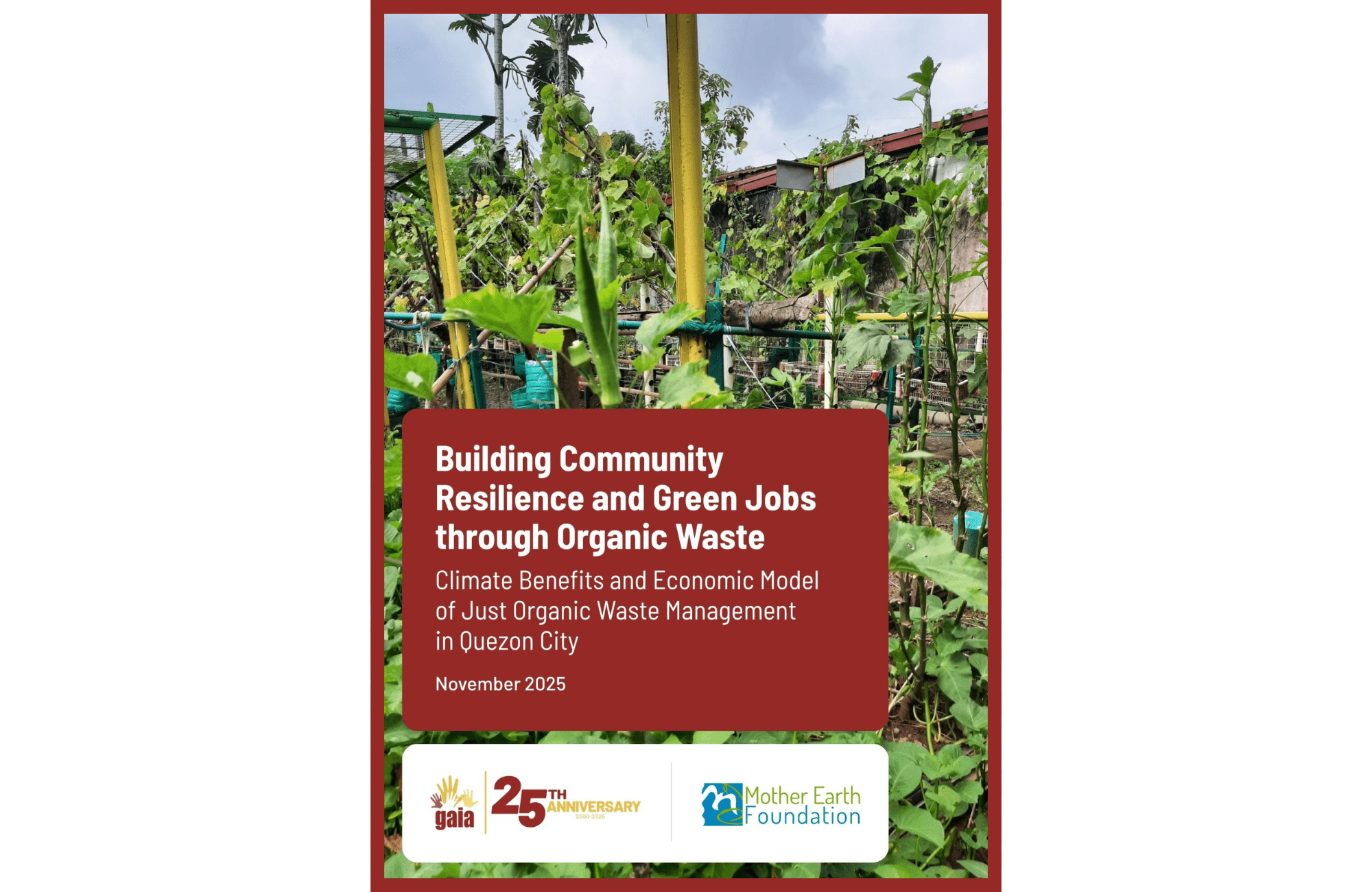
The organics diversion project in Quezon City demonstrates how decentralized, community-based waste systems can advance both climate action and social inclusion. The Barangay Payatas Zero Waste and Urban Farming Project, launched in 2024, stands as a model of how cities can integrate organic waste management, food production, and livelihood creation to achieve just and sustainable methane mitigation.
Construyendo resiliencia comunitaria y empleos verdes a través de los residuos orgánicos: Beneficios climáticos y modelo económico de la gestión justa de los residuos orgánicos en la ciudad de Buenos Aires


El trabajo de la cooperativa de recicladores de base (cartoneros), Recuperadores Urbanos del Oeste (RUO) es un ejemplo de cómo un sistema de manejo de residuos liderado por recicladores de base puede generar empleos verdes, mejorar la resiliencia climática y fortalecer el tejido social, y a su vez contribuir al cumplimiento de los ambiciosos objetivos de reducción de la disposición de residuos y metas climáticas.
Building Community Resilience and Green Jobs through Organic Waste: Climate Benefits and Economic Model of Just Organic Waste Management in Buenos Aires City


The Recuperadores Urbanos del Oeste (RUO) cooperative exemplifies how waste picker-led waste management can generate green jobs, strengthen climate resilience, and build social cohesion while supporting the city’s ambitious landfill diversion and climate goals.
Building Community Resilience and Green Jobs through Organic Waste: Climate Benefits and Economic Model of Just Organic Waste Management in Accra

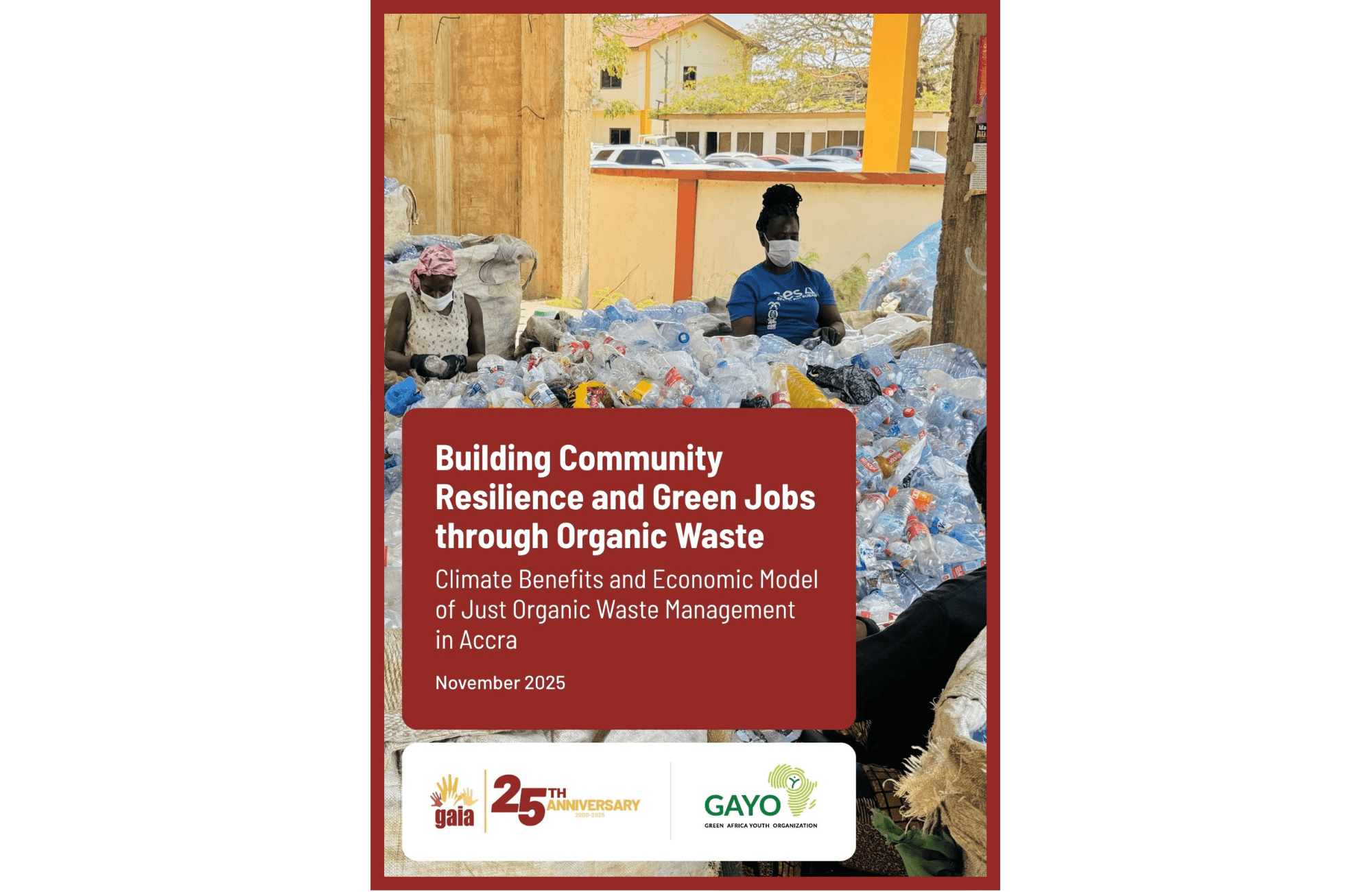
Accra is paving a path toward climate resilience and social equity through community-led zero waste initiatives. The Green Africa Youth Organization (GAYO) has pioneered a decentralized waste management model that demonstrates how organic waste diversion can create green jobs, reduce methane emissions, and strengthen local governance.
Financiación climática para basura cero y Transición Justa: Impulsar la implementación hacia soluciones equitativas y justas en el sector de los residuos


El sector de los residuos es uno de los más poderosos, pero también uno de los más ignorados, en lo que respecta a la acción climática y la justicia social. Contribuye con casi el 20 % de las emisiones mundiales de metano, pero recibió menos del 1,5% de la financiación climática en 2023 (Climate Policy Initiative [CPI], 2025a, p. 4). El 99% de esta financiación se destina a proyectos de incineración con recuperación energética (WTE) y solo el 1% se dedica a la gestión de residuos orgánicos (Climate Policy Initiative [CPI], 2023a, p. 16). La financiación internacional para la gestión de residuos también se sustenta principalmente en la financiación privada y en el uso de instrumentos que generan deuda (CPI, 2025a, p. 22).
En la COP de Implementación de Belém, el mundo se enfrenta a una prueba decisiva. La COP30 debe demostrar que la financiación climática puede impulsar tanto una rápida mitigación como mejoras tangibles en la vida de las personas. Para el sector de los residuos, esto significa redirigir la financiación hacia soluciones basura cero y una Transición Justa que cree puestos de trabajo, mejore la salud y fortalezca las economías locales. Invertir en los recicladores de base, los trabajadores informales y las comunidades no es caridad, sino una estrategia multiplicadora que incorpora a millones de trabajadores al sistema climático, donde pequeñas inversiones producen impactos desproporcionados y sostenidos. Este enfoque nos ayudará a alcanzar nuestro objetivo climático y a construir sistemas basados en servicios que no dejen a nadie atrás.









